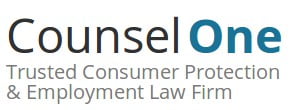
Press Release (ePRNews.com) - Beverly Hills, CA - Jul 13, 2019 - In accordance with the California wage-and-hour laws, employers are required to provide lunch breaks to employees who work a minimum number of hours. Under this law, employees classified as non-exempt, who work more than 5 hours a day, must receive a minimum break of 30 minutes. Where employees work for more than 10 hours a day, they must receive a second meal break of at least 30 minutes.
The above information is basic knowledge that is outlined in California’s wage-and-hour laws. However, less known information is provided with regards to California employees who may file a wage-and-hour lawsuit against employers for an unpaid lunch break as per the requirements under California labor laws. One article states that “If your employer has violated California wage-and-hour laws, you may find that your best option is to initiate a lawsuit. Bringing a claim against your current or former employer can be stressful and confusing. However, California employment lawyers are available to help.”
A CounselOne P.C attorney stated the following, “An employee can sue their employer for violating a specific California wage-and-hour law. The most common cases against employers include misclassifying employees as exempt employees or independent contractors to avoid paying overtime or providing a required break. Another common one is a failure to abide by California overtime rules whereby employers require or encourage employees to work ‘off the clock.’ In other cases, lawsuits may be brought about for not providing employees with a mandatory meal or rest breaks or requiring them to work during their breaks. Such violations of the California minimum wage laws are increasingly common in recent years.”
When it comes to determining how long an employee can take before they can bring a lawsuit against his or her current or former employer, the determining factor is the statute of limitation for California wage-and-hour lawsuits. The statute of limitations is the timeframe provided by the law between an illegal action and bringing such an illegal action to the courts for remedy. A definitive definition of the statute of limitations is provided for by the Cornell Law School Legal Information Institute statute of limitations is “any law that bars claims after a certain period of time passes after injury. The period of time varies depending on the jurisdiction and the type of claim. Statute of limitations exist for both civil and criminal causes of action and begin to run from the date of the injury, or the date it was discovered, or the date on which it would have been discovered with reasonable efforts. Many statutes of limitations are actual legislative statutes, while others may come from common judicial law.” The statute of limitations for California wage-and-hour lawsuits is three years from the date when the most recent violation has occurred; this is in accordance with the California Code of Civil Procedure (CCP) 338.
An employee may receive damages from a successful wage-and-hour lawsuit; however, this depends on the type of law the employer has violated. Where an employer has failed to provide a required meal or rest breaks compensation would be one hours pay at the regular rate for each break that he or she did not receive.
About the CounselOne PC:
CounselOne PC is a law firm of renowned professionals who specialize in employment law. For more information on employee lunch breaks and the necessary legal action to be taken contact CounselOne PC today.
Contact Information:
CounselOne P.C.
Address:9301 Wilshire Blvd., Suite 650, Beverly Hills, CA 90210
Phone: 310-277-9945
Fax: 424-277-3727
Source : CounselOne P.C.




